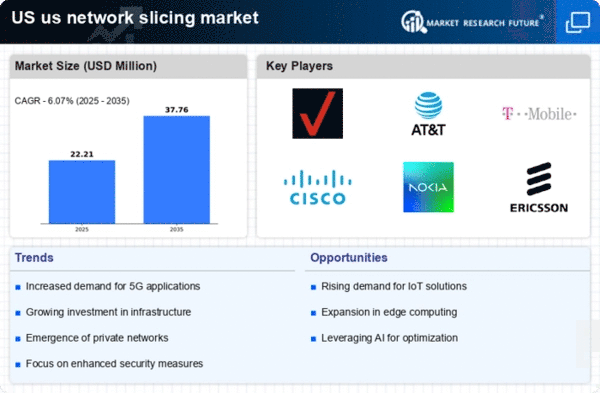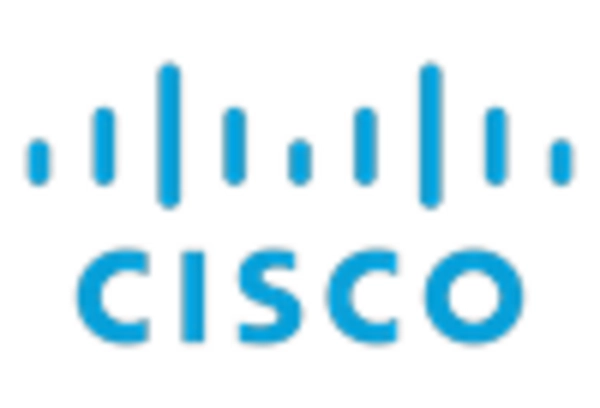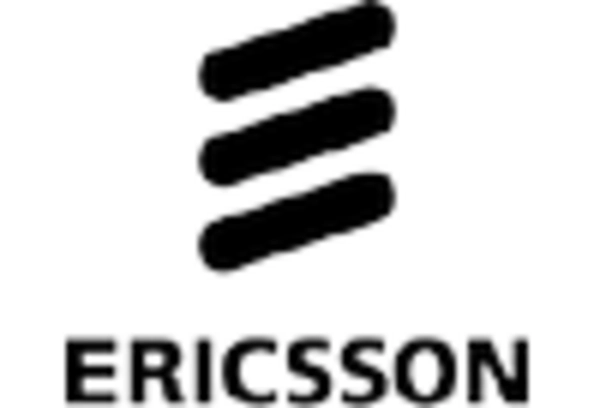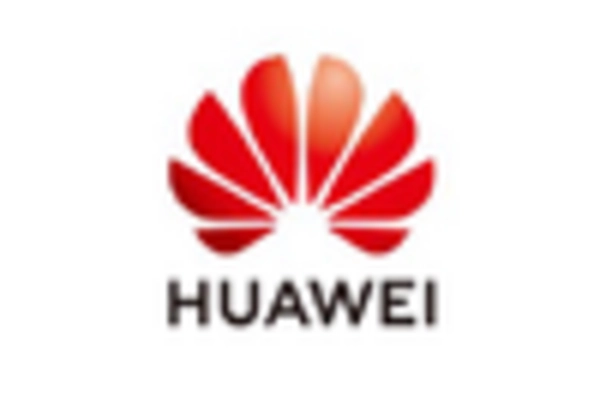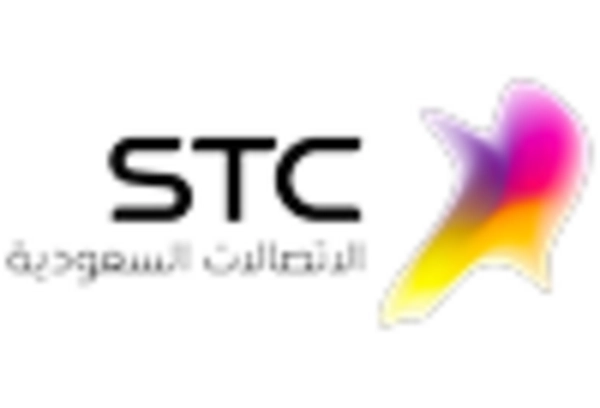Increased Focus on Network Efficiency
In the US Network Slicing Market, there is an increasing emphasis on network efficiency and optimization. As telecommunications companies face mounting pressure to reduce operational costs while enhancing service quality, network slicing presents a viable solution. By enabling the creation of multiple virtual networks on a single physical infrastructure, operators can optimize resource allocation and improve overall network performance. This approach not only reduces costs but also enhances the user experience by providing tailored services to different customer segments. Market data indicates that network slicing can lead to a 30% reduction in operational expenses for service providers. Consequently, the drive towards greater network efficiency is a crucial factor propelling the growth of the US Network Slicing Market.
Growing Demand for Enhanced Connectivity
The US Network Slicing Market is experiencing a surge in demand for enhanced connectivity solutions. As businesses and consumers increasingly rely on high-speed internet and seamless connectivity, network slicing emerges as a pivotal technology. This demand is driven by the proliferation of IoT devices and the need for reliable, low-latency connections. According to recent data, the number of connected devices in the US is projected to reach over 30 billion by 2026, necessitating advanced network management solutions. Network slicing allows operators to allocate resources dynamically, ensuring that critical applications receive the bandwidth they require. This capability is particularly vital for sectors such as healthcare and autonomous vehicles, where uninterrupted connectivity is paramount. Thus, the growing demand for enhanced connectivity is a significant driver of the US Network Slicing Market.
Emergence of Smart Cities and Industry 4.0
The development of smart cities and the adoption of Industry 4.0 technologies are significantly influencing the US Network Slicing Market. As urban areas evolve into smart cities, the demand for reliable and efficient communication networks intensifies. Network slicing facilitates the integration of various services, such as traffic management, public safety, and energy distribution, into a cohesive framework. Furthermore, Industry 4.0, characterized by automation and data exchange in manufacturing technologies, relies heavily on robust network infrastructures. The US government has allocated substantial funding to support smart city initiatives, which is expected to drive the adoption of network slicing solutions. This trend indicates a promising future for the US Network Slicing Market as it aligns with national objectives for technological advancement and urban development.
Regulatory Support for Telecommunications Innovation
Regulatory frameworks in the United States are increasingly supportive of telecommunications innovation, which is a key driver for the US Network Slicing Market. The Federal Communications Commission (FCC) has implemented policies aimed at fostering competition and encouraging the deployment of advanced technologies. These regulations create an environment conducive to the adoption of network slicing, as they promote investment in next-generation infrastructure. Additionally, initiatives aimed at expanding broadband access in rural areas further enhance the market potential for network slicing solutions. As operators seek to comply with regulatory requirements while enhancing service offerings, the demand for network slicing technologies is likely to grow. This regulatory support is thus a significant factor influencing the trajectory of the US Network Slicing Market.
Rising Investment in Telecommunications Infrastructure
Investment in telecommunications infrastructure is on the rise in the United States, serving as a vital driver for the US Network Slicing Market. With the increasing demand for high-speed internet and advanced communication services, telecom operators are allocating substantial resources to upgrade their networks. According to industry reports, capital expenditures in the US telecommunications sector are expected to exceed $100 billion annually by 2026. This influx of investment facilitates the deployment of network slicing technologies, enabling operators to offer customized services to diverse customer segments. Furthermore, partnerships between telecom companies and technology providers are becoming more common, fostering innovation and accelerating the adoption of network slicing solutions. As a result, the rising investment in telecommunications infrastructure is a crucial factor propelling the growth of the US Network Slicing Market.


